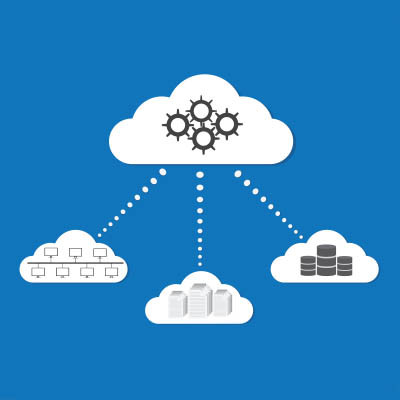Master Solutions Blog
We can probably all agree that there’s a big difference between “staying busy” and “looking busy,” and that the first option is generally the better one in the workplace. The big difference is how productive you actually are.
Let’s go over some simple-to-implement ways you can help your team boost their productivity without even thinking about it.
Artificial Intelligence (AI) is everywhere these days. It has become a standard feature in many business tools and devices. This means a lot of people are using it day-in and day-out. The question becomes: Is it truly beneficial, or does it create more headaches than it solves? Let's explore how AI can actually help your business.
Productivity is an essential metric in modern life, and while it can often feel impossible to achieve, there are ways to overcome the anti-productivity malaise. Here are three habits that are likely to help you in your search for both organizational and personal productivity.
We understand that the whispers about artificial intelligence are growing louder. Understanding AI is the first step to harnessing its incredible potential for your business, bringing peace of mind to both employers and employees.
Many businesses are under the impression that their IT, despite being a necessary cost, is just that: a bottomless pit for the company’s hard-earned money. However, this impression could be a sign that the business is not utilizing its technology effectively. Let’s look at three signs that your organization might need to reconsider its relationship with IT spending and how they contribute to your company’s overall impressions of IT (as well as its productivity).
When it comes to being productive, most people think of time management tools or multitasking strategies. One of the most overlooked factors in productivity is simply feeling good. That means physically, mentally, and emotionally. On days when your mood is high and your energy is up, work tends to feel easier and more manageable. That’s no coincidence. Productive individuals understand that how you feel directly impacts how you perform.
Multitasking might commonly be seen as a super skill that all employees and business professionals should master, but is it really all it’s cracked up to be? The truth of the matter is that multitasking doesn’t work, even if it looks like it does. In fact, all it succeeds in doing is making you work slower while increasing your stress and decreasing productivity.
Running a small business is no easy feat, especially when it comes to managing supply chains. You’ve got to keep track of suppliers, shipments, inventory, and customer demands—all while keeping your sanity. Luckily, technology is here to help. Let's break down some of the key tech tools that small businesses are using to make their supply chains smoother and more efficient.
Decisive decision-making is a business staple. Without it, nothing would get done. Picking and choosing what to stay flexible about is one of the biggest question marks you can have when running a business. One aspect of your business that you always need some wiggle room in is your IT. This month, we take a look at what technology you should prioritize flexibility in and how to achieve that goal.
All of your workers depend on the success of your business. A lot of times, however, it doesn’t always seem to managers that they understand that concept. They probably aren’t just slacking off, they probably are a little burned out. Deloitte estimates that approximately 8 out of 10 wage workers show some signs of burnout. Since any lack of productivity is wasted money, you need to do what you can to ensure your employees have the resources they need to overcome burnout.
Successful businesses need to change to keep up with what customers want, new trends, and how the world is changing. This means they have to know their business well and be open to trying new things. Let’s look at six important areas where businesses often make changes to stay successful.
If you want to talk about the most important technology today, the cloud is definitely a big deal. The cloud helps businesses do things that used to only be possible for the biggest companies. Today, we’ll look at how small businesses use the cloud and the benefits they get from it.
Every organization relies on its IT to be available when needed. Some businesses can’t function at all without them. However, if a business isn’t keeping up with the management and maintenance of its IT, it can lead to downtime. Today, we’ll explore proactive IT maintenance strategies and how they help businesses minimize downtime in various ways.
Technology has empowered us to achieve more than ever, but with that progress comes increased expectations for everyone. This means greater productivity, and the pressure to perform can be relentless at times, making it crucial to find efficient ways to manage our tasks. Unfortunately, there is a natural limit to how much we can accomplish, and certain challenges can push us to that limit faster. Today, we want to explore two of the most common productivity pitfalls.
We all share a lot of data. There’s everything shared for professional purposes, of course, but there’s also all the casual things that we send back and forth—chats, requests to have people to pick up things on the way home, and (naturally) memes and pet pictures.
Most of this is sent off without a thought. However, let’s take a moment to think about it for a moment… is there an impact to all this data being sent around?
Technology plays a crucial role regardless of a company’s size or growth stage. Therefore, having an IT infrastructure that can adapt to changes in business scale is essential.
Let's discuss the significance of a suitable IT infrastructure and explore best practices for tailoring it to fit your business needs.
For the modern business, keeping processes efficient is a key contributor to maintaining productivity. By doing your best to eliminate inefficiencies small businesses can remain competitive and profitable. One effective strategy is to streamline processes through automation.
Whether you like it or not, change comes for us all—particularly for businesses. Any organization that hopes to see any significant growth or innovation will be subject to change. Your organization should be capable of working with change, and when it comes to factors that can influence how well you adapt to change, there is no greater tool than your company’s IT.
Information technology, or IT, is an indispensable component for most contemporary businesses and serves as the backbone of their operations. To ensure a smooth operational infrastructure, it is crucial that businesses manage their IT in the most effective manner possible.
One such way businesses can do this is through working with a managed service provider, or MSP. These types of arrangements can provide businesses with clarity and ease of mind as it pertains to IT and operations.
Have you ever tried to introduce new technology to your team, only to have your efforts at improving your business’ efficiency bounce off of your apathetic and frustrated employees who just don’t see the benefits? You’re not alone; it’s difficult to teach old dogs new tricks, as they say. Granted, it’s not impossible, and your team can (and should) be able to get on board with any new implementations, provided you do some initial legwork.




















